6. Kiss Me Deadly (Robert Aldrich, 1955)
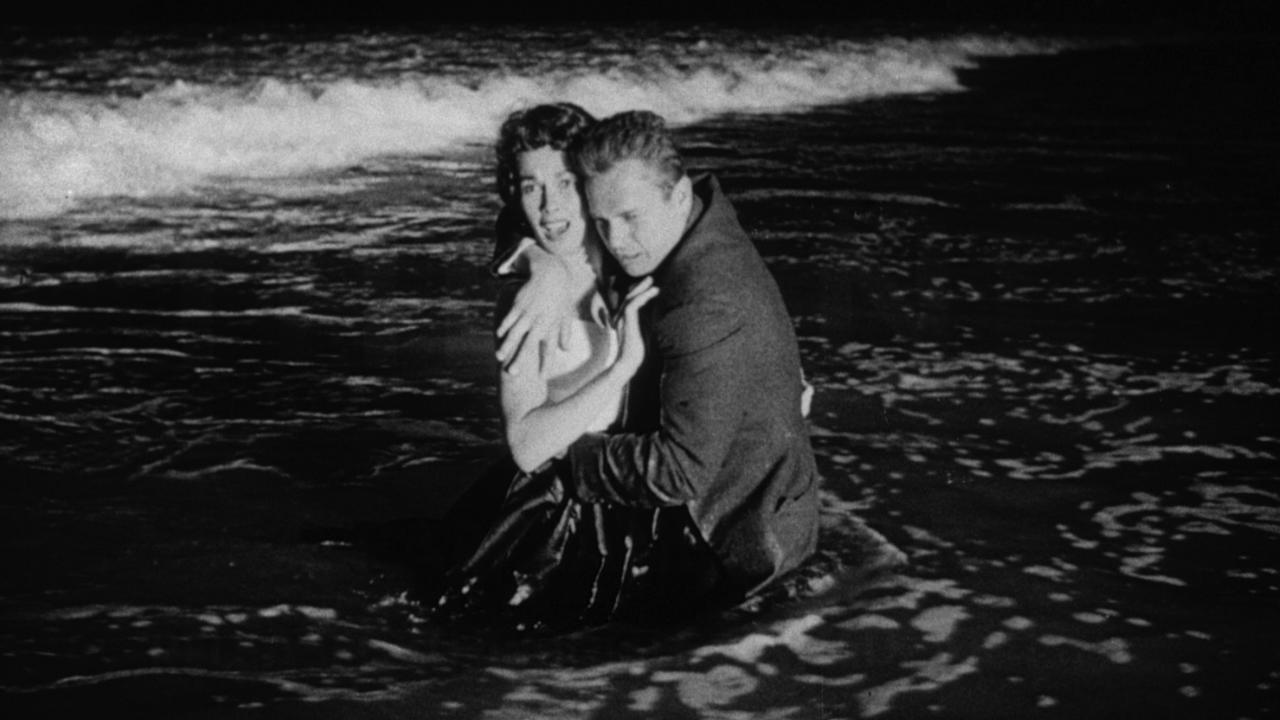
The aesthetics of film noir have had a huge impact on Martin Scorsese’s work. Whether its subjective camera angles, dark lighting, or morally compromised heroes, much of his work is rooted in the genre. He loved the genre so much he even remade the classic Robert Mitchum film Cape Fear in 1991 as a genre exercise after Goodfellas.
A great film noir from the 50s that doesn’t get quite the attention it deserves is Kiss Me Deadly. Based off the Mickey Spillane novel, its an exploration of violence and wanton desire with a truly off-the-wall ending.
It feels ahead of its time, predicting the apocalyptic and paranoia infusing fever dream of Taxi Driver, using film noir tropes to explore a society that feels close to cracking apart at the seams. Martin Scorsese loved it, including it in his seminal list, Martin Scorsese’s Film School: The 85 Films You Must See to Know Anything About Film.
7. Donnie Brasco (Mike Newell, 1997)
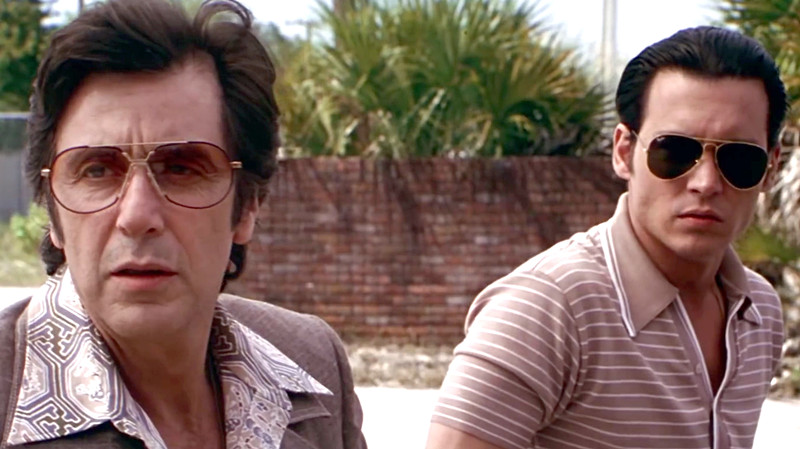
Along with Die Hard and Pulp Fiction, Goodfellas, released right at the start of the decade, was the most influential film of the 90s. It spawned a whole host of gangster related movies, all the way from Menace II Society to Analyse This. One of the best riffs on this film is Donnie Branco, which paired Al Pacino (as an on edge gangster) with Johnny Depp (playing the cop going undercover to take him down).
Based on the true story of an FBI agent who infiltrated the mafia in New York during the 1970s, it works as a riff on many of the same themes, including paranoia and loyalty, all tied up by its generous and exuberant vibe. Then as it tightens to a devastating conclusion, it evokes much of the same claustrophobic atmosphere as the end of Scorsese’s epic crime drama.
8. Pusher (Nicolas Winding Refn, 1996)
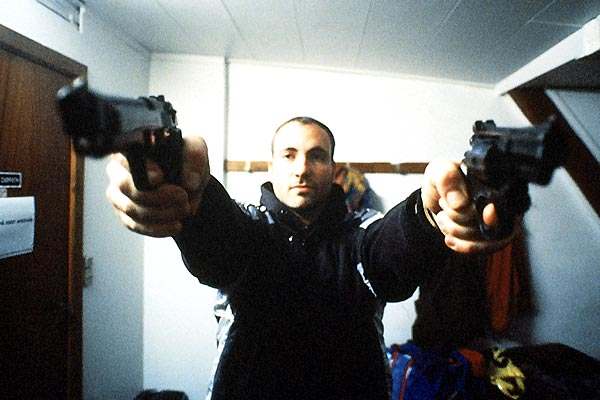
One of the most popular films in Danish history, Nicolas Winding Refn’s debut Pusher owes a direct debt to the work of Martin Scorsese, especially Mean Streets. Often considered the first gangster film to come out of Denmark, it put both the director and its star Mads Mikkelsen on the map. It tells the story of a petty gangster and his friend who go to a heroin deal only for things to turn south. Soon he has to cover his tracks, resulting in a harrowing yet devastatingly gripping experience.
Like in Mean Streets, most of the camera shots are handheld, increasing the intensity of the experience. Yet like the best gangster films, Refn imbues the tale with a lot of humour, making you laugh while you flinch. It was followed by two sequels, showing the enduring legacy of one of Denmark’s best films.
9. Bob Le Flambeur (Jean-Pierre Melville, 1955)
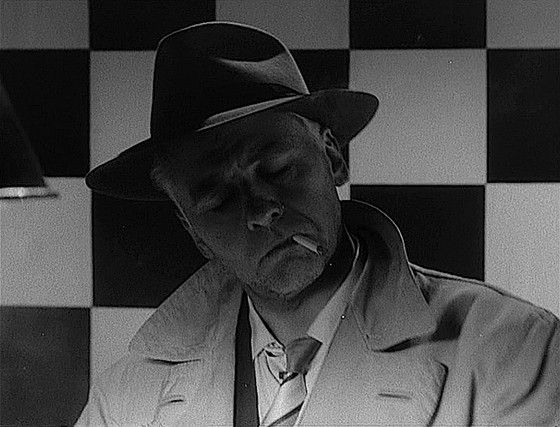
Before Scorsese, the French made men who ran afoul of the law impossibly cool. Jean-Pierre Melville, whose films predated and later inspired the French New Wave, was the best at shooting men in trench-coats, smoking endless cigarettes, looking tres chic. With Bob Le Flambeur, the depiction of a an old-school gambler who can never seem to win a single round of poker, Melville perfected the French gangster style.
Its style was revolutionary, including handheld camera work filmed on the back of a delivery bike. Like Mean Streets, the film was shot on a minuscule budget, making up in style what it lacked in lavish production design. It moves through gambling dens, nightclubs and casinos with ease; a similar milieu to Scorsese’s work, and an undoubted influence on his subject matter (although his favourite Melville film is the lesser seen Le Doulos).
10. A Bronx Tale (Robert De Niro, 1993)
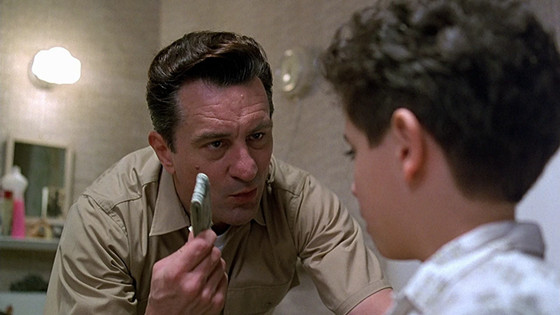
Robert De Niro and Martin Scorsese are one of the classic pairings in cinema. From Mean Streets to the upcoming The Irishman, their work together contains some of the most indelible images committed to screen.
De Niro may be a side character in epic crime drama Goodfellas, but his performance as James Conway is truly the epitome of cool. Some of the lessons learned from working with Scorsese rubbed off on Robert De Niro, whose directorial debut plays something like the opposite of Goodfellas: a cautionary tale about the dangers of the gangster life.
Based on the play by Chazz Paliminteri, it is a coming-of-age tale filled with local character and life. De Niro himself excels as the boy’s father, a bus driver who shows the virtues of living an honest life. While other directors saw perverse joy in the Mafioso life post-Goodfellas, De Niro, (who also like Scorsese lived in Little Italy as a child), created something much truer to lived experience and thus far more affecting.